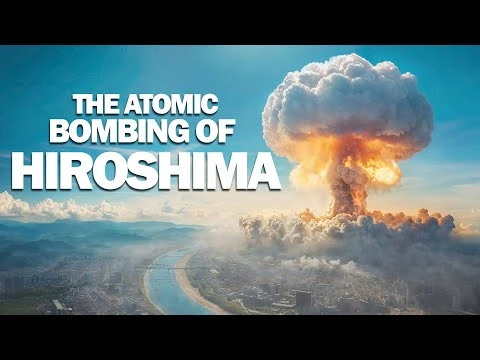On August 6, 1945, the world witnessed its first nuclear attack when the U.S. dropped the atomic bomb ‘Little Boy’ on Hiroshima, killing over 120,000 people. Three days later, a second bomb hit Nagasaki, leading to Japan’s surrender and the end of World War II.
80 Years Since Hiroshima: Remembering the World’s First Nuclear Attack
The world’s first nuclear attack happened 80 years back on this day at Hiroshima. On August 6, 1945, nuclear bombing happened. As per the record of Imperial War Museum, the attack happened at 8:15 am on August 6, 1945 at the Hiroshima city of Japan. The bomb named ‘Little Boy’ was dropped from the USAAF B-29 bomber Enola Gay, that exploded 1,800 feet above Hiroshima.
The record further states that five square miles of the city centre burnt to ashes, killing 120,000 people. Some bone-chilling details reveal that some people instantly vaporized and the rest died due to burning and radiation.
Why Hiroshima
This city was deliberately chosen as it was a military supply centre and was never bombed earlier, hence had extreme impact due to the atomic weapon. The impact was long-lasting. While some died instantly, many were exposed to radiation and started slowly falling sick. The website of Hiroshima for Global Peace revealed that the radioactive waves that were emitted by the explosion had severe impact on the human body:
“Radioactive waves emitted from the explosion caused severe damage to the human body. At a distance of 1 km from the hypocentre, neutrons and gamma rays gave off four grays of radiation, sufficient to cause the death of one out of every two people. One after another, people with no external injuries became sick after a couple of days and later died.”
Bombing on Nagasaki
The second attack was on Nagasaki city on August 9, around 11 am. The atomic bomb was called ‘Fat Man’, which is believed to be more powerful than ‘Little Boy’. However, the amount of devastation caused was comparatively lower than Hiroshima because of the terrain.
As per the report, the city of Kokura was the initial target but because of dense cloud, the bomb got diverted towards Nagasaki. In this attack, some 73,000 people lost their lives.
What led to Japan’s surrender
The large scale of destruction and devastation led to the surrender of Japan on August 15, 1945. This brought an end to the Second World War. The event of bombing led to global discussion on the atomic weapon usage in war.


